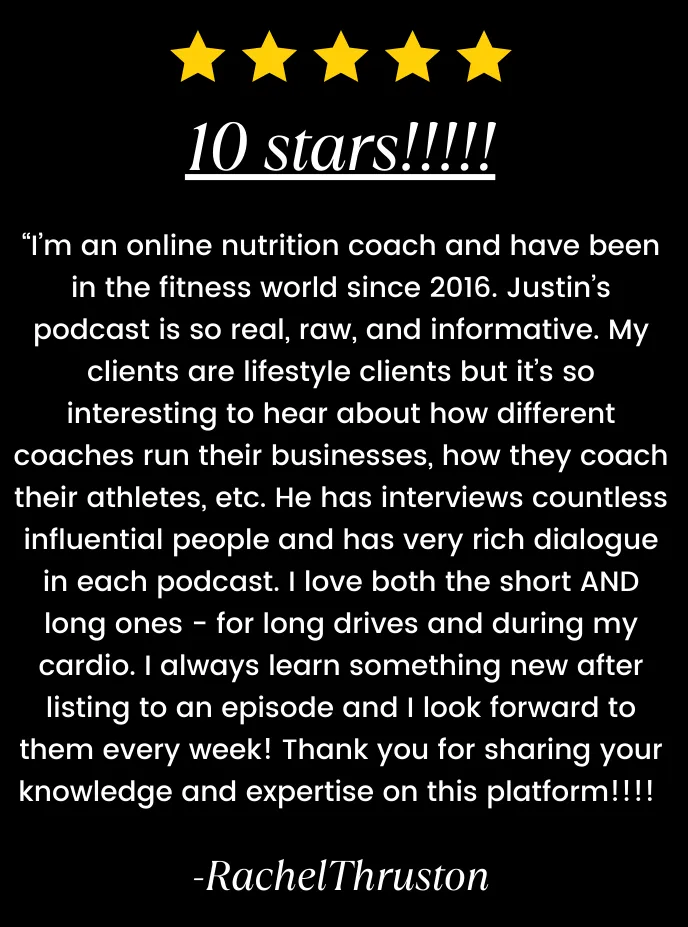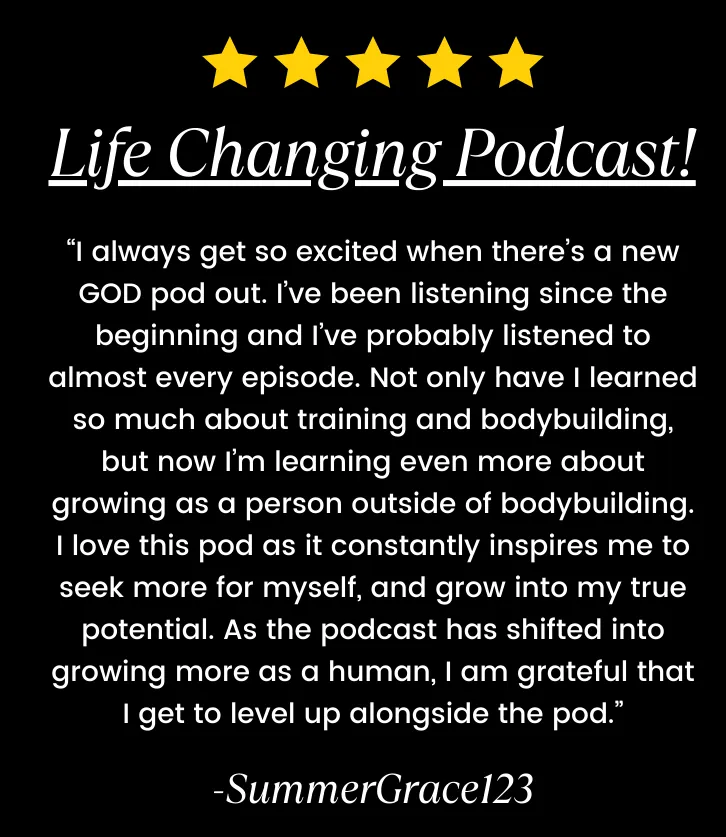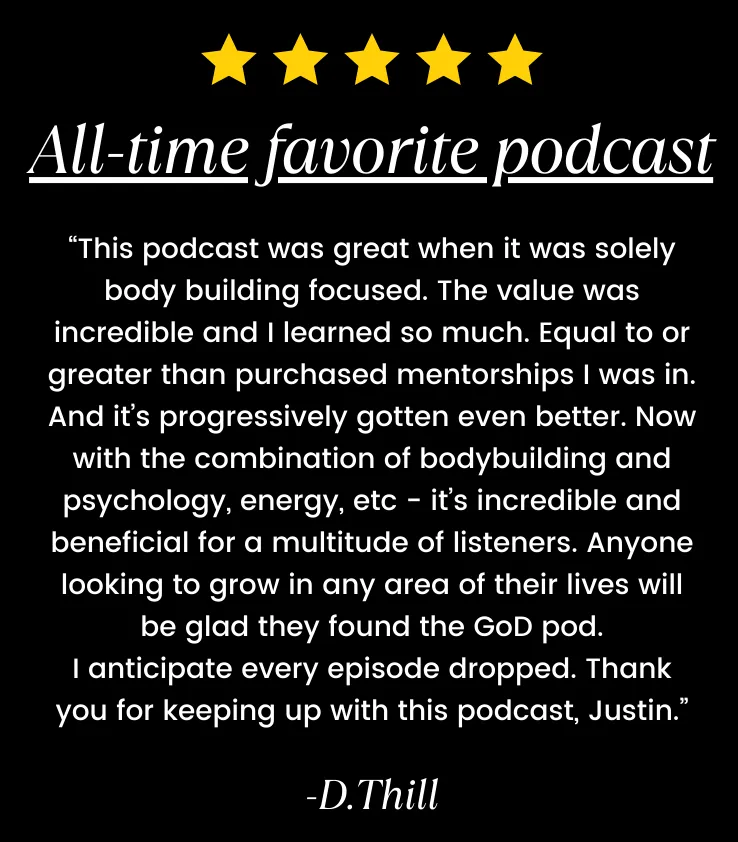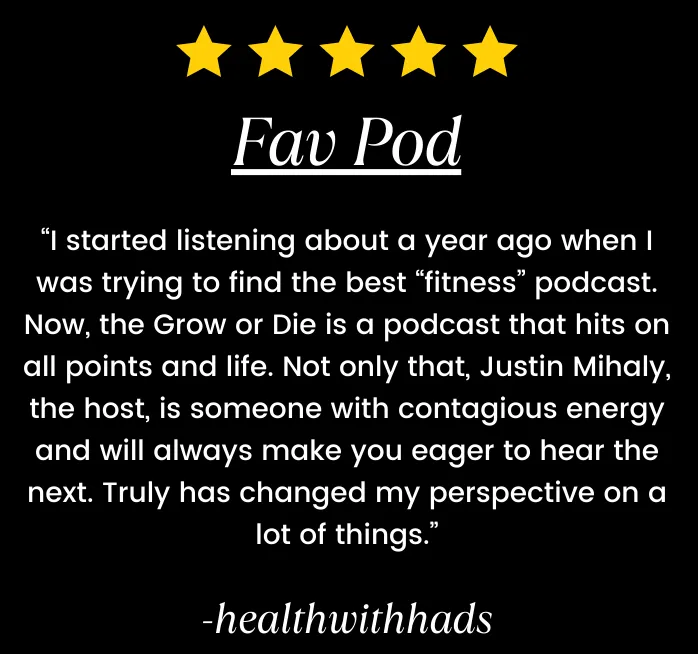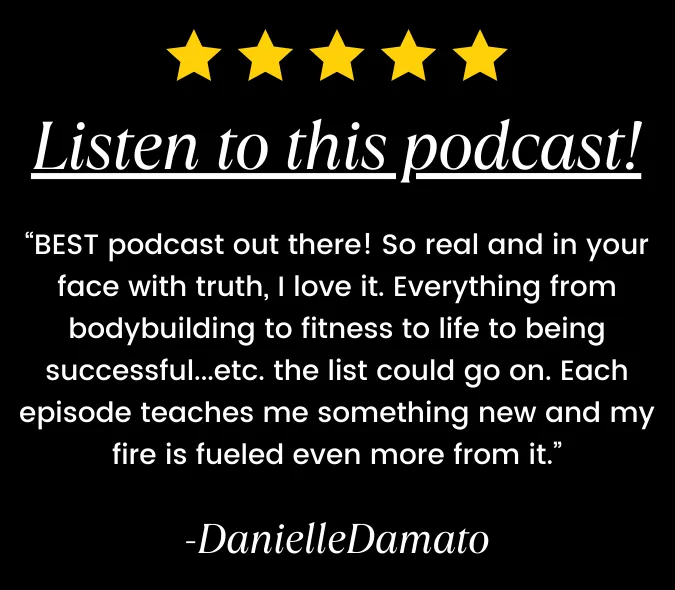
Welcome to The Grow Or Die Podcast – your ultimate hub for fitness and entrepreneurship.
Join Justin Mihaly as we explore nutrition, training, bodybuilding, and more.
Beyond the gym, discover the realities of business ownership, mindset tips, and captivating discussions.
Hosted fearlessly, we spill the tea and push boundaries because growth is the essence of life.
Tune in for insights that elevate your fitness and entrepreneurial journey.
Ready to grow or die?


EP 409: How To Approach The Post-Show Phase
How To Approach The Post-Show Phase
In this episode of the Grow or Die podcast, host Justin Mihaly shares his expert strategies for managing post-contest nutrition and recovery. This critical phase, following a bodybuilding competition, is essential for maintaining the gains made during prep and setting the stage for a successful off-season. Here’s a detailed look at the key discussions that took place after the preview and introduction.
Importance of Post-Contest Stabilization
Justin begins by emphasizing the importance of stabilizing the body post-contest. One of the most crucial mistakes athletes can make is pulling metabolic aids like T3 (thyroid hormone) and Clenbuterol too quickly after the competition. He explains that it’s essential to keep these aids in place for a few days post-show to allow the body to stabilize, particularly if the athlete achieved their peak condition using these substances.
Managing Post-Show Nutrition
Transitioning from a strict contest diet to a more balanced nutritional plan is challenging but necessary. Justin stresses that post-show, the body craves micronutrients rather than the high-sugar, high-fat foods athletes might feel they want. He points out that binging on junk food can lead to severe water retention, making the body feel bloated and sluggish. Instead, athletes should focus on nutrient-dense foods to help their bodies recover from the stress of competition.
Psychological Aspects of Post-Show Eating
Justin discusses the psychological battle many competitors face after a show. The restriction during prep can make sugary and fatty foods seem irresistible. However, giving in to these cravings can cause a negative feedback loop, making athletes feel worse both physically and mentally. He emphasizes the importance of having a post-show plan to avoid this trap, including a structured reintroduction of foods and maintaining some level of dietary discipline.
Designing a Post-Show Plan
Justin outlines his approach to creating a post-show plan, which includes:
- Post-Contest Meals: Allowing athletes to have a celebratory meal but then returning to a structured diet.
- Hydration Management: Carefully managing water intake to prevent excessive water retention. Justin recommends keeping water intake low immediately after the show and gradually increasing it.
- Electrolyte Balance: Monitoring sodium and potassium intake to maintain proper hydration and prevent imbalances that can lead to edema.
Water and Electrolyte Management
One of the critical aspects of post-show recovery is managing water and electrolyte balance. Justin describes how he reduces water and sodium intake in the days leading up to the show to achieve a dry, lean look. Post-show, he gradually reintroduces water while maintaining a careful balance of electrolytes to prevent excessive water retention and ensure the athlete feels good and can perform well in the gym.
Gradual Reintroduction of Foods
Justin advises a gradual reintroduction of carbohydrates and other foods that might have been restricted during prep. This approach helps prevent sudden spikes in weight and water retention. He explains that post-show, athletes are incredibly insulin sensitive, and this sensitivity should be managed carefully to avoid unwanted fat gain and ensure the body utilizes nutrients effectively.
Monitoring and Adjusting the Plan
The key to a successful post-show phase is continuous monitoring and adjustment. Justin emphasizes the importance of regular check-ins with clients to assess their physical and psychological state. He adjusts their nutrition and training plans based on their progress, ensuring they stay on track and avoid the common pitfalls of the post-show period.
Long-Term Off-Season Strategy
Finally, Justin discusses the transition from the post-show phase to a long-term off-season strategy. He highlights the importance of setting new goals, maintaining discipline, and continuing to focus on nutrient-dense foods to support recovery and muscle growth. The off-season is a time to build on the progress made during prep and set the stage for future competitions.
Conclusion
This episode of the Grow or Die podcast with Justin Mihaly provides valuable insights into mastering post-contest nutrition and recovery. By focusing on stabilization, careful reintroduction of foods, and continuous monitoring, athletes can maintain their gains and set the stage for a successful off-season.

Welcome to The Grow Or Die Podcast – your ultimate hub for fitness and entrepreneurship.
Join Justin Mihaly as we explore nutrition, training, bodybuilding, and more.
Beyond the gym, discover the realities of business ownership, mindset tips, and captivating discussions.
Hosted fearlessly, we spill the tea and push boundaries because growth is the essence of life.
Tune in for insights that elevate your fitness and entrepreneurial journey.
Ready to grow or die?

EP 409: How To Approach The Post-Show Phase
How To Approach The Post-Show Phase
In this episode of the Grow or Die podcast, host Justin Mihaly shares his expert strategies for managing post-contest nutrition and recovery. This critical phase, following a bodybuilding competition, is essential for maintaining the gains made during prep and setting the stage for a successful off-season. Here’s a detailed look at the key discussions that took place after the preview and introduction.
Importance of Post-Contest Stabilization
Justin begins by emphasizing the importance of stabilizing the body post-contest. One of the most crucial mistakes athletes can make is pulling metabolic aids like T3 (thyroid hormone) and Clenbuterol too quickly after the competition. He explains that it’s essential to keep these aids in place for a few days post-show to allow the body to stabilize, particularly if the athlete achieved their peak condition using these substances.
Managing Post-Show Nutrition
Transitioning from a strict contest diet to a more balanced nutritional plan is challenging but necessary. Justin stresses that post-show, the body craves micronutrients rather than the high-sugar, high-fat foods athletes might feel they want. He points out that binging on junk food can lead to severe water retention, making the body feel bloated and sluggish. Instead, athletes should focus on nutrient-dense foods to help their bodies recover from the stress of competition.
Psychological Aspects of Post-Show Eating
Justin discusses the psychological battle many competitors face after a show. The restriction during prep can make sugary and fatty foods seem irresistible. However, giving in to these cravings can cause a negative feedback loop, making athletes feel worse both physically and mentally. He emphasizes the importance of having a post-show plan to avoid this trap, including a structured reintroduction of foods and maintaining some level of dietary discipline.
Designing a Post-Show Plan
Justin outlines his approach to creating a post-show plan, which includes:
- Post-Contest Meals: Allowing athletes to have a celebratory meal but then returning to a structured diet.
- Hydration Management: Carefully managing water intake to prevent excessive water retention. Justin recommends keeping water intake low immediately after the show and gradually increasing it.
- Electrolyte Balance: Monitoring sodium and potassium intake to maintain proper hydration and prevent imbalances that can lead to edema.
Water and Electrolyte Management
One of the critical aspects of post-show recovery is managing water and electrolyte balance. Justin describes how he reduces water and sodium intake in the days leading up to the show to achieve a dry, lean look. Post-show, he gradually reintroduces water while maintaining a careful balance of electrolytes to prevent excessive water retention and ensure the athlete feels good and can perform well in the gym.
Gradual Reintroduction of Foods
Justin advises a gradual reintroduction of carbohydrates and other foods that might have been restricted during prep. This approach helps prevent sudden spikes in weight and water retention. He explains that post-show, athletes are incredibly insulin sensitive, and this sensitivity should be managed carefully to avoid unwanted fat gain and ensure the body utilizes nutrients effectively.
Monitoring and Adjusting the Plan
The key to a successful post-show phase is continuous monitoring and adjustment. Justin emphasizes the importance of regular check-ins with clients to assess their physical and psychological state. He adjusts their nutrition and training plans based on their progress, ensuring they stay on track and avoid the common pitfalls of the post-show period.
Long-Term Off-Season Strategy
Finally, Justin discusses the transition from the post-show phase to a long-term off-season strategy. He highlights the importance of setting new goals, maintaining discipline, and continuing to focus on nutrient-dense foods to support recovery and muscle growth. The off-season is a time to build on the progress made during prep and set the stage for future competitions.
Conclusion
This episode of the Grow or Die podcast with Justin Mihaly provides valuable insights into mastering post-contest nutrition and recovery. By focusing on stabilization, careful reintroduction of foods, and continuous monitoring, athletes can maintain their gains and set the stage for a successful off-season.
GET VIP ACCESS NOW
Don't miss out on the inside scoop – subscribe today! Join our community of growth enthusiasts and be the first to access premium content that will fuel your fitness journey and entrepreneurial endeavors. Your path to personal and professional growth starts here. Enter your email now to unlock a VIP experience with The Grow Or Die Podcast!
